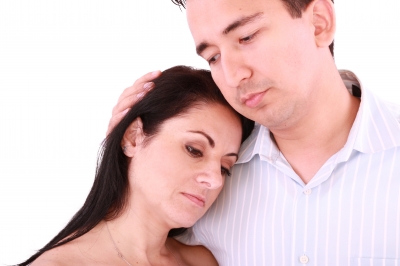
 I can tell you that here in New York City, Hurricane Sandy may be gone, but it’s destruction remains. Things are slowly getting back to running condition, but as I write this, there are still lots of people without power, and more still dealing with challenges like cleaning up their homes, taking stock of their losses, looking for food, or even trying to figure out where they’re going to live.
I can tell you that here in New York City, Hurricane Sandy may be gone, but it’s destruction remains. Things are slowly getting back to running condition, but as I write this, there are still lots of people without power, and more still dealing with challenges like cleaning up their homes, taking stock of their losses, looking for food, or even trying to figure out where they’re going to live.
Meanwhile, we have another storm on its way, according to recent weather reports. Though it’s not going to be as bad as Sandy, when you don’t have power, your house is damaged, you’re grieving the loss of loved ones, or you’re living out of a hotel, more storms are the last thing you want to face.
All this adds up to a big dose of stress for millions of people. And we all know that stress is not good for our health. I wanted to reach out with some tips for everyone to help keep those stress levels in check. Take care of yourselves out there!
- Realize what you’ve been through. In the whirlwind of trying to cope with the aftermath, you may not realize how intense your stress has been. Particularly if you and your family are dealing with loss, whether that is the loss of a loved one, a house, or even treasured belongings, it can take a big toll on all of you. Watch for signs like mood swings, depression, anxiety, confusion, and other changes in your normal personality. If others around you are displaying these feelings, don’t take them personally-everyone is coping with the stress. Realize that relationships are likely to be strained until things calm down. Breathe deeply, and focus on retaining your own relaxed center.
- Accept your feelings. We all want to be brave and strong and all those things, but whatever you’re feeling, it’s okay. Realize that others are feeling the same way as you are, and it’s okay to be going through grief and sadness. The most important step here is to find others to share with. Talk to your neighbors and friends, journal about your experience, talk to clergy, and seek out online support groups, like this one on Facebook.
- Don’t dwell. Even as you accept your feelings, look for ways to move beyond them. One of the best ways is to make a list of what you and your family are grateful for. Your health, your job, the efforts of the American Cross and other organizations, etc. Realize that things will get better, though it may take longer than you’d like.
- Practice self-care. It’s harder than ever after an event like this to take care of yourself, but this is the most important time to do it! Make smart choices for yourself as often as you can. Try to eat healthy, get enough sleep, and continue to exercise every day. Remember that exercise is a great stress reliever! You may not be able to do it all the time, but that’s okay-use each day to recommit to doing better for yourself. Find something to do that you enjoy, even if it’s just reading a good book, listening to your favorite music, or sharing a game with loved ones.
- Take it one step at a time. When you’re looking at the damage to your home, realizing you’ve lost your computer or cherished family photos, or trying to get back and forth to work while living in a motel, it’s easy to feel overwhelmed. There’s so much to do and so little time to do it, you may imagine. Try to relax and realize that recovery is not going to happen overnight. You may feel a strong desire for everything to go back to normal now, but accept that that’s not likely to happen. For your sake and the sake of your family, you need to take care of yourself, focus on the present, and take things one step at a time. Figure out what you need to do today and this week, then let the rest be for now.
- Seek counseling. If you’re noticing high-risk behavior in yourself or in a loved one, such as excess drinking, drug usage, or tendency to self-harm, reach out to a professional immediately. Call the Disaster Distress Hotline at 1-800-985-5990 for 24-hour resources. The American Red Cross can also direct you to a mental health advisor.
- Take action. One of the best ways to start feeling better is to take action. But that doesn’t mean the action has to be about getting back to normal. The action can be toward helping you feel stronger, for example. It may be about helping your family to reconnect and calm down. Maybe you need to travel out of town to see relatives, or take a break away from the disaster area. Maybe you need to create a plan for how you will handle the next few weeks, or spend some time with your children doing some arts and crafts projects that will help them cope with their feelings. Take action, but make sure that action makes you feel stronger and more in control, not anxious and overwhelmed.
How are you handling the stress after the storm? Please share your ideas.
Picture courtesy David Castillo Dominici via freedigitalphotos.net.
Sources
Stephanie Nolasco, “Finding Ways to Cope with Post-Hurricane Sandy Stress,” Fox News Latino, November 1, 2012, http://latino.foxnews.com/latino/health/2012/11/01/finding-ways-to-cope-with-post-hurricane-sandy-stress/.

